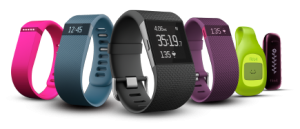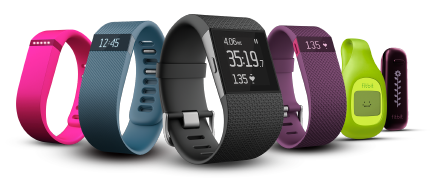Wearable tech, specifically fitness trackers have exploded in popularity in recent years. Aimed at the massive casual fitness consumer base, the Fitbit has quickly become the favorite of many people who want to track their fitness. Most models except the highest end models are pretty basic but they claim to have sophisticated step counter, heart
Wearable tech, specifically fitness trackers have exploded in popularity in recent years. Aimed at the massive casual fitness consumer base, the Fitbit has quickly become the favorite of many people who want to track their fitness. Most models except the highest end models are pretty basic but they claim to have sophisticated step counter, heart rate monitoring, and GPS positioning to make the relatively high price tag worth while. A class-action lawsuit that was filed earlier this year claims that the heart rate technology that Fitbits use are in fact inaccurate. How inaccurate could it be? The class-action calls on a study that has determined that in moderate to high intensity exercise it is off by an average of 20 beats per minute. “We are not arguing that it is a medical device. I think that is irrelevant,” said Jonathan Selbin, one of the attorneys who filed the lawsuit. “This is about the way they market it and that they charge a premium for the heart rate monitor, but it’s not giving a meaningful measurement.”
Fitbit refutes the claims and calls on their own independent study which states their PurePulse technology used in higher end models (the Surge, Blaze and Charge HR), is accurate. Their study unfortunately has a sample size of just two subjects. “It works pretty well when you are resting,” study co-author Edward Jo said. But Fitbit is “advertised to people who exercise,” and ads suggest that the trackers are “counting every beat.” To Fitbit’s credit, they never claimed they perfectly quantify anything. Their use of tricky marketing makes you believe you’re buying something that can accurately measure your vitals. The website promises that you can “accurately track calorie burn all day,” “check real-time heart rate” and “use simplified heart rate zones to tailor your workouts on the spot” or “see when your health is improving by analyzing your all-day and resting heart rate trends.” That is definitely some tricky language and does seem like it’s making a pretty big promise. “If they had just been honest,” Selbin said, “and said it can give you a ballpark figure most of the time, or if the marketing emphasized that you can use these when you are aspiring to be healthier, that would have been OK, but that’s not how they market it, and they charge a premium for it.”
When Fitbit when public, the company was worth $8 billion dollars.



















Leave a Comment
Your email address will not be published. Required fields are marked with *